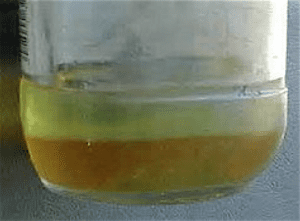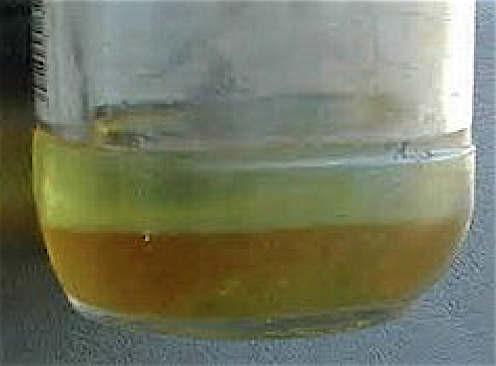(WASHINGTON) — A towing vessel operating in a pushing-ahead configuration experienced a loss of all propulsion while operating on the Mississippi River. The loss of propulsion occurred approximately three hours after getting underway and about 3.5 hours after receiving fuel from a shoreside facility. Fortunately, there was no significant damage to the vessel, nor injuries to crewmembers because of this casualty.
The subsequent investigation into the causal factors revealed that the vessel’s fuel tanks and fuel service system to the engine were heavily contaminated by water. The amount of water contamination was so significant that the vessel’s engines initially suffered a reduction in power and eventually shut down completely, resulting in a total loss of propulsion.

Since ships began using liquid fuels more than 100 years ago, vessel operators and engineers have long known the hazards associated with contaminated fuel. Fortunately, advancements in fuel quality standards and onboard purification/filtration systems have resulted in less-frequent casualties resulting directly from fuel contamination. However, improvements have also been made in engine designs, resulting in precise machining and smaller clearances in parts such as fuel pumps, bearings, cylinders, burners and injectors. Contaminants such as sediment and water can have detrimental impacts on equipment designed to operate on clean, water-free fuel. In addition, because fuel is constantly consumed while the vessel is operating, continuous vigilance in fuel procurement, as well as system operations and maintenance, is required to maintain a quality fuel program.
Large ships often have the benefit of having the space and power available to operate centrifugal purifiers to ensure high fuel quality is maintained. This is frequently not the case for smaller vessels that operate only on rivers or lakes. Those vessels often only have one or two filters installed directly in the fuel supply line and those types of filters are not as efficient as centrifugal purifiers for removing water.
The effects of water and other contaminants in fuel systems can be detrimental to the operation of any vessel. From large commercial ships operating internationally, to inland towing vessels and recreational boats, failure to ensure a supply of fuel free of water and contaminants can have devastating consequences.
The Coast Guard strongly recommends that vessel owners and operators:
• Ensure that fuel supplies (bunkers) meet the engine manufacturer’s specifications for important parameters such as viscosity and cetane number, as well as any regulatory requirements such as flash point and sulfur content.
• Include regular fuel oil sampling and testing from service tanks as part of a periodic maintenance system.
• Ensure that fuel filters are of the correct flow rate and filtration (micron) rating, and that an adequate supply of spare filters is kept onboard.
• Consider the use of duplex filter systems to enable switching from clogged to clean filters, as well as the use of filter differential pressure gauges to monitor the condition and cleanliness of the filter element.
• Consider the use of a water sensor in diesel tank or filter system to monitor water content in fuels. These sensors may be combined with displays and alarms to indicate excessive water and are generally more effective at detecting rising water content than periodic manual sampling.
• Ensure that a means is provided, usually by a valve and piping arrangement, to periodically sample the fuel being received during bunkering.
• Have a plan in place to recover from any engine shutdown that occurs because of water contamination in fuel. Fuel severely contaminated by water or other impurities has the potential to cause damage to the engine in a number of ways, including subsequent contamination of the lubricating oil system.
Casualty investigators, marine surveyors and inspection personnel are encouraged to maintain an acute awareness to these issues and initiate corrective actions as needed.
This safety alert is provided for informational purposes only and does not relieve any domestic or international safety, operational or material requirements. Developed by the U.S. Coast Guard Office of Design and Engineering Standards and based on the initial recommendations from Sector New Orleans, La. Distributed by the Office of Investigations and Analysis. Questions may be sent to typeapproval@uscg.mil or by phone at (202) 372-1375.
– U.S. Coast Guard

